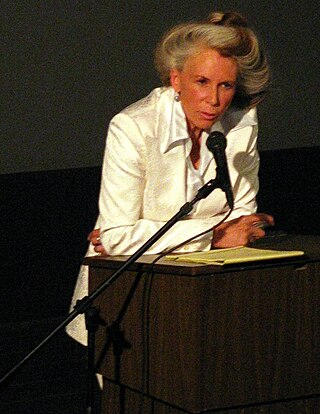Related Research Articles

Fiqh is Islamic jurisprudence. Fiqh is often described as the human understanding and practices of the sharia, that is human understanding of the divine Islamic law as revealed in the Quran and the Sunnah. Fiqh expands and develops Shariah through interpretation (ijtihad) of the Quran and Sunnah by Islamic jurists (ulama) and is implemented by the rulings (fatwa) of jurists on questions presented to them. Thus, whereas sharia is considered immutable and infallible by Muslims, Fiqh is considered fallible and changeable. Fiqh deals with the observance of rituals, morals and social legislation in Islam as well as political system. In the modern era, there are four prominent schools (madh'hab) of fiqh within Sunni practice, plus two within Shi'a practice. A person trained in fiqh is known as a faqīh.
A fatwā is a legal ruling on a point of Islamic law (sharia) given by a qualified Faqih in response to a question posed by a private individual, judge or government. A jurist issuing fatwas is called a mufti, and the act of issuing fatwas is called iftāʾ. Fatwas have played an important role throughout Islamic history, taking on new forms in the modern era.

Jurisprudence, or legal theory, is the theoretical study of the propriety of law. Scholars of jurisprudence seek to explain the nature of law in its most general form and they also seek to achieve a deeper understanding of legal reasoning and analogy, legal systems, legal institutions, and the proper application of law, the economic analysis of law and the role of law in society.
A precedent is a principle or rule established in a previous legal case that is either binding on or persuasive for a court or other tribunal when deciding subsequent cases with similar issues or facts. Common-law legal systems place great value on deciding cases according to consistent principled rules, so that similar facts will yield similar and predictable outcomes, and observance of precedent is the mechanism by which that goal is attained. The principle by which judges are bound to precedents is known as stare decisis. Common-law precedent is a third kind of law, on equal footing with statutory law and subordinate legislation in UK parlance – or regulatory law.
Sharia is a body of religious law that forms a part of the Islamic tradition. It is derived from the religious precepts of Islam and is based on the sacred scriptures of Islam, particularly the Quran and the Hadith. In Arabic, the term sharīʿah refers to God's immutable divine law and is contrasted with fiqh, which refers to its human scholarly interpretations. In the historical course, fiqh sects have emerged that reflect the preferences of certain societies and state administrations on behalf of people who are interested in the theoretical (method) and practical application studies of laws and rules, but sharia has never been a valid legal system on its own. It has been used together with "customary (Urf) law" since Omar or the Umayyads.
Arrow's impossibility theorem, the general possibility theorem or Arrow's paradox is an impossibility theorem in social choice theory that states that when voters have three or more distinct alternatives (options), no ranked voting electoral system can convert the ranked preferences of individuals into a community-wide ranking while also meeting the specified set of criteria: unrestricted domain, non-dictatorship, Pareto efficiency, and independence of irrelevant alternatives. The theorem is often cited in discussions of voting theory as it is further interpreted by the Gibbard–Satterthwaite theorem. The theorem is named after economist and Nobel laureate Kenneth Arrow, who demonstrated the theorem in his doctoral thesis and popularized it in his 1951 book Social Choice and Individual Values. The original paper was titled "A Difficulty in the Concept of Social Welfare".
In law, a legal person is any person or 'thing' that can do the things a human person is usually able to do in law – such as enter into contracts, sue and be sued, own property, and so on. The reason for the term "legal person" is that some legal persons are not people: companies and corporations are "persons" legally speaking, but they are not people in a literal sense.
Critical legal studies (CLS) is a school of critical theory that developed in the United States during the 1970s. CLS adherents claim that laws are devised to maintain the status quo of society and thereby codify its biases against marginalized groups.
Legal realism is a naturalistic approach to law. It is the view that jurisprudence should emulate the methods of natural science, i.e., rely on empirical evidence. Hypotheses must be tested against observations of the world.
A peremptory norm is a fundamental principle of international law that is accepted by the international community of states as a norm from which no derogation is permitted.

A Mufti is an Islamic jurist qualified to issue a nonbinding opinion (fatwa) on a point of Islamic law (sharia). The act of issuing fatwas is called iftāʾ. Muftis and their fatwas played an important role throughout Islamic history, taking on new roles in the modern era.

Catharine Alice MacKinnon is an American radical feminist legal scholar, activist, and author. She is the Elizabeth A. Long Professor of Law at the University of Michigan Law School, where she has been tenured since 1990, and the James Barr Ames Visiting Professor of Law at Harvard Law School. From 2008 to 2012, she was the special gender adviser to the Prosecutor of the International Criminal Court.

Hans Kelsen was an Austrian jurist, legal philosopher and political philosopher. He was the author of the 1920 Austrian Constitution, which to a very large degree is still valid today. Due to the rise of totalitarianism in Austria, Kelsen left for Germany in 1930 but was forced to leave his university post after Hitler's seizure of power in 1933 because of his Jewish ancestry. That year he left for Geneva and later moved to the United States in 1940. In 1934, Roscoe Pound lauded Kelsen as "undoubtedly the leading jurist of the time". While in Vienna, Kelsen met Sigmund Freud and his circle, and wrote on the subject of social psychology and sociology.
Principles of Islamic jurisprudence, also known as uṣūl al-fiqh, are traditional methodological principles used in Islamic jurisprudence (fiqh) for deriving the rulings of Islamic law (sharia).
A legal guardian is a person who has been appointed by a court or otherwise has the legal authority to make decisions relevant to the personal and property interests of another person who is deemed incompetent, called a ward. For example, a legal guardian might be granted the authority to make decisions regarding a ward’s housing or medical care or manage the ward’s finances. Guardianship is most appropriate when an alleged ward is functionally incapacitated, meaning they have a lagging skill critical to performing certain tasks, such as making important life decisions. Guardianship intends to serve as a safeguard to protect the ward.
In ethics and social sciences, value denotes the degree of importance of something or action, with the aim of determining which actions are best to do or what way is best to live, or to describe the significance of different actions. Value systems are prospective and prescriptive beliefs; they affect the ethical behavior of a person or are the basis of their intentional activities. Often primary values are strong and secondary values are suitable for changes. What makes an action valuable may in turn depend on the ethical values of the objects it increases, decreases, or alters. An object with "ethic value" may be termed an "ethic or philosophic good".

The sociology of law is often described as a sub-discipline of sociology or an interdisciplinary approach within legal studies. Some see sociology of law as belonging "necessarily" to the field of sociology, but others tend to consider it a field of research caught up between the disciplines of law and sociology. Still others regard it as neither a subdiscipline of sociology nor a branch of legal studies but as a field of research on its own right within the broader social science tradition. Accordingly, it may be described without reference to mainstream sociology as "the systematic, theoretically grounded, empirical study of law as a set of social practices or as an aspect or field of social experience". It has been seen as treating law and justice as fundamental institutions of the basic structure of society mediating "between political and economic interests, between culture and the normative order of society, establishing and maintaining interdependence, and constituting themselves as sources of consensus, coercion and social control".

Diya in Islamic law, is the financial compensation paid to the victim or heirs of a victim in the cases of murder, bodily harm or property damage by mistake. It is an alternative punishment to qisas. In Arabic, the word means both blood money and ransom, and it is spelled sometimes as diyah or diyeh.
Myres Smith McDougal was a scholar of international law and Sterling Professor of International Law at the Yale Law School, where he taught for fifty years. He also taught at New York Law School. He was an influential proponent of a "policy-oriented" approach to international law that became associated with Yale Law School.
International legal theory comprises a variety of theoretical and methodological approaches used to explain and analyse the content, formation and effectiveness of public international law and institutions and to suggest improvements. Some approaches center on the question of compliance: why states follow international norms in the absence of a coercive power that ensures compliance. Other approaches focus on the problem of the formation of international rules: why states voluntarily adopt international legal norms, that limit their freedom of action, in the absence of a world legislature. Other perspectives are policy oriented; they elaborate theoretical frameworks and instruments to criticize the existing rules and make suggestions on how to improve them. Some of these approaches are based on domestic legal theory, others are interdisciplinary, while others have been developed expressly to analyse international law.
References
- ↑ See generally M.S. MacDougal and H.D. Lasswell, Jurisprudence for a Free Society, pub. 1992 by Martinus Nijhoff Publishers.
- ↑ See Report of the International Law Commission, U.N. GAOR, 57th Sess., Suppl. No. 10, at 240. (U.N. Doc. A/ 57/10 (2002).)
- ↑ Paideia. Papers relating to the subject were given at the Twentieth World Congress of Philosophy, in Boston, Massachusetts, from August 10-15, 1998. They are collected at this site.
- ↑ See Alexandria.